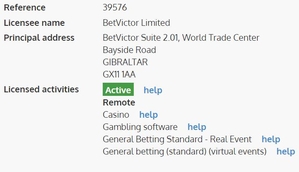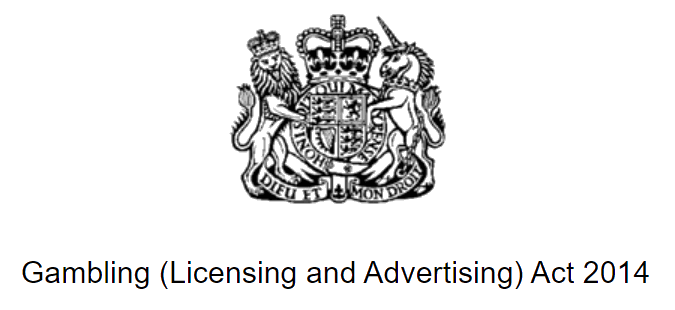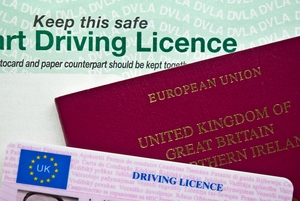 It has become commonplace for online betting sites to ask users to verify their accounts before they’re able to place bets, but why is that the case? There are a number of answers to the question, but the main ones are that it ensures that a customer’s age can be verified to ensure that they are over 18, whilst also limiting the chance of an account to be used for money laundering or criminal activity.
It has become commonplace for online betting sites to ask users to verify their accounts before they’re able to place bets, but why is that the case? There are a number of answers to the question, but the main ones are that it ensures that a customer’s age can be verified to ensure that they are over 18, whilst also limiting the chance of an account to be used for money laundering or criminal activity.
The law behind verification on bookmaker websites is dictated by the Gambling Act of 2005, which was introduced to add some structure to an otherwise structureless industry. Clarification was added in 2014, further strengthening the hand of the regulators and ensuring that the likes of fraud would be much more difficult to perpetrate. Bookmakers need to know who you are before you can bet.
The Gambling Act Of 2005
 Prior to the introduction of the Gambling Act in 2005, the world of online betting was almost entirely unregulated. The last time that any legislation had been introduced on the subject was in 1960 and the Betting and Gaming Act. That was well before the invention of the internet, of course, and its primary job was to make off-course bookmakers legal in the United Kingdom.
Prior to the introduction of the Gambling Act in 2005, the world of online betting was almost entirely unregulated. The last time that any legislation had been introduced on the subject was in 1960 and the Betting and Gaming Act. That was well before the invention of the internet, of course, and its primary job was to make off-course bookmakers legal in the United Kingdom.
As the internet age began to develop, however, it was soon clear that more legislation would be necessary in order to stop the world of betting and gambling online from becoming a lawless entity. The Act also introduced the Gambling Commission, which arrived with the principle objectives of crime prevention and the protection of the most vulnerable.
One of the main things that the United Kingdom Gambling Commission required of gambling companies was that they obtain a licence (see example above). Part of the conditions of that licence is that customers confirm their age, location and their residential status, which betting sites are then obliged to collect from people wishing to use their services.
The Gambling Bill Of 2014

It might be hard to accept now, but in 2005 the internet was still a relatively young thing and no one had any real idea how it would be used moving forward. The 2005 Act did the best it possibly could in terms of ensuring things were as far as possible for customers of online betting companies, but more still needed to be done. Step forward the Gambling Bill of 2014.
This was designed to be an add-on to the 2005 Act, concentrating more on on the licensing and advertising side of the industry. It had a heavy focus on the world of online betting and remote licensing, ensuring that all companies that operate in the United Kingdom are controlled both by the UKGC and the law of the land, regardless of where they’re actually based.
New Rules Came In For 2019
 The Gambling Commission is constantly trying to ensure that the rules and regulations are as tight as possible, ensuring the safety of the most vulnerable. This came to a head in 2019 when new rules were introduced with the specific aim of making gambling online ‘fairer and safer’. The hope was that they would allow operators to verify a customer’s age and identity much faster.
The Gambling Commission is constantly trying to ensure that the rules and regulations are as tight as possible, ensuring the safety of the most vulnerable. This came to a head in 2019 when new rules were introduced with the specific aim of making gambling online ‘fairer and safer’. The hope was that they would allow operators to verify a customer’s age and identity much faster.
The changes meant that a customer would need to verify their age and that they are who they said they are before they’d be able to do things such as deposit funds or gamble in any way. It was a change from the previous 72 hour rule, which said that that was how long operators had to identify someone and they could gamble during that waiting period.
This also covers free to play games, the reasoning being even though these are not technically gambling in themselves they can promote gambling to an under age audience. You therefore need to verify yourself now before you can do anything with an online bookie or casino.
Verification Documents Required
 Since 2019, a gambling operator has had to be able to verify a customer’s name, address and date of birth before they’re allowed to gamble in any way. Licensees are required to let customers know what form of identity will be accepted, as well as what circumstances might lead to a customer needing to provide further details.
Since 2019, a gambling operator has had to be able to verify a customer’s name, address and date of birth before they’re allowed to gamble in any way. Licensees are required to let customers know what form of identity will be accepted, as well as what circumstances might lead to a customer needing to provide further details.
In part, the changes were brought in because of complaints from customers that some betting sites were asking for additional information when a punter wished to cash out their winnings. The hope was that that would become less common, with bettors told in advance what information they’d need to provide and when they’d need to offer it.
As with everything done by the Gambling Commission, the hope has been to protect children and vulnerable people from gaining access to gambling sites when they shouldn’t be able to. It’s why so the verification checks are seen as so important by the UKGC and gambling legislators, even if they feel inconvenient to punters signing up to various sites.
In some instances you can be verified without you knowing. Some companies perform soft credit checks, these don’t damage your credit score and at the same time allow a betting company to verify your age and residential status through the electoral roll. If this is not possible you will be asked to provide a form of ID, a passport or drivers licence )(both sides) along with a proof of address such as a bank statement, council tax bill or other official document, such as a HMRC letter.
The companies are obliged as a condition of their license to keep any documents you send secure and encrypted to prevent identify theft. It is, however, still technically possible to bet without ID if you do so in person and you look are 18.
Money Laundering
 Whilst bookmakers will generally assume that all customers are decent, law-abiding people, they will also be aware of the fact that criminals will to betting sites as a means of laundering money. They won’t be interested in the best odds, promotions or the depth of coverage on offer, instead focussing on any games that give as close to Evens as possible.
Whilst bookmakers will generally assume that all customers are decent, law-abiding people, they will also be aware of the fact that criminals will to betting sites as a means of laundering money. They won’t be interested in the best odds, promotions or the depth of coverage on offer, instead focussing on any games that give as close to Evens as possible.
That means that they’ll be able to bet with their dirty money, take a small loss and withdraw the clean money once they’ve gambled as much as they need to. In order to stop people from being able to do this, betting companies work hard to get identification of all their users. If they suspect that someone is attempting to launder money then they will ask for more stringent checks.
The same is true of people who might be attempting to commit fraud. It’s not uncommon for someone to use a banking method that doesn’t belong to them to place bets, so companies will ask for more proof of identification. It’s not always intentional that people mislead betting sites, often simply giving an old address that a card is registered to, for example.
Regardless of the reason, anyone who flashes up as being a suspicious bettor will be asked for ID in excess of the identification given when first joining a site. As always, if you’ve done nothing wrong then you’ll have nothing to worry about. If you get asked for more stringent identification than you were expecting, just make sure all of the details you’ve given the site are up-to-date.
